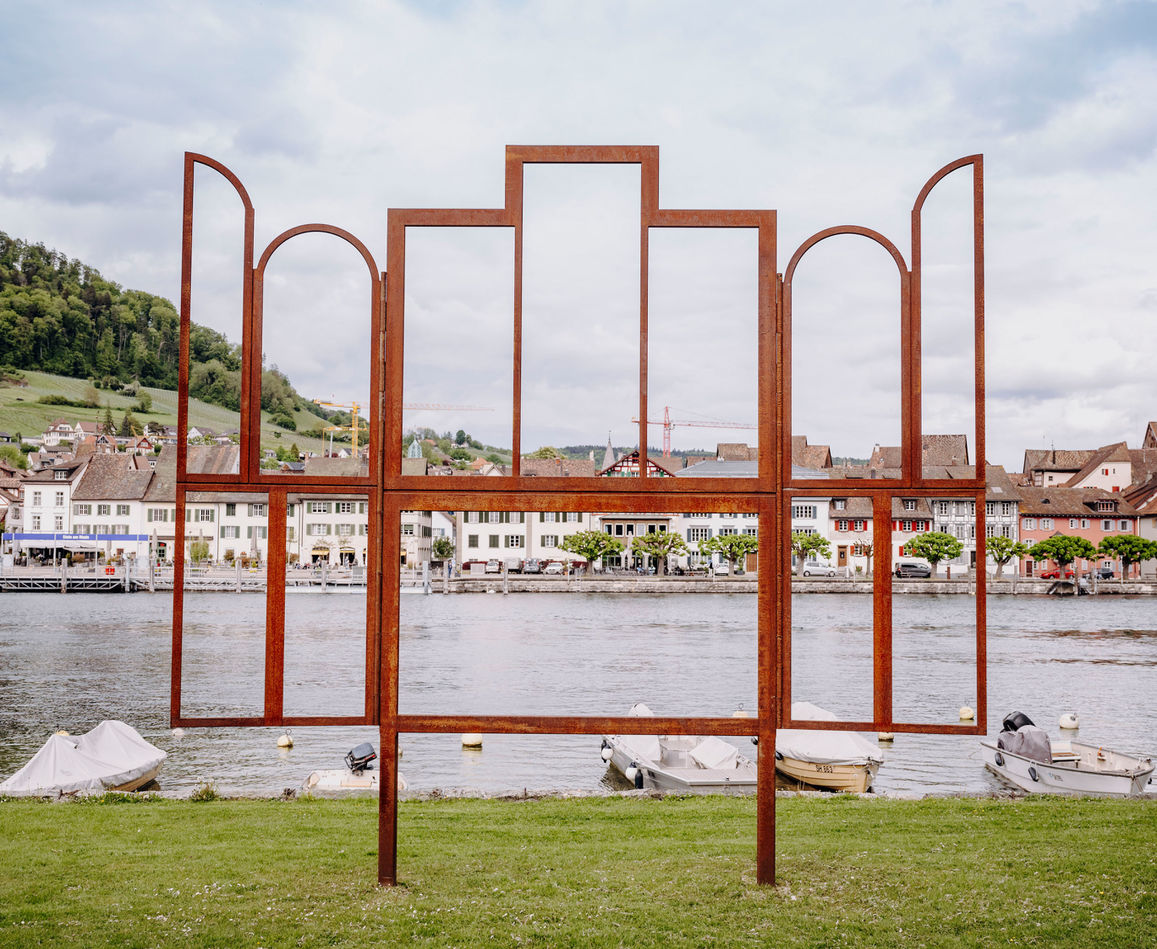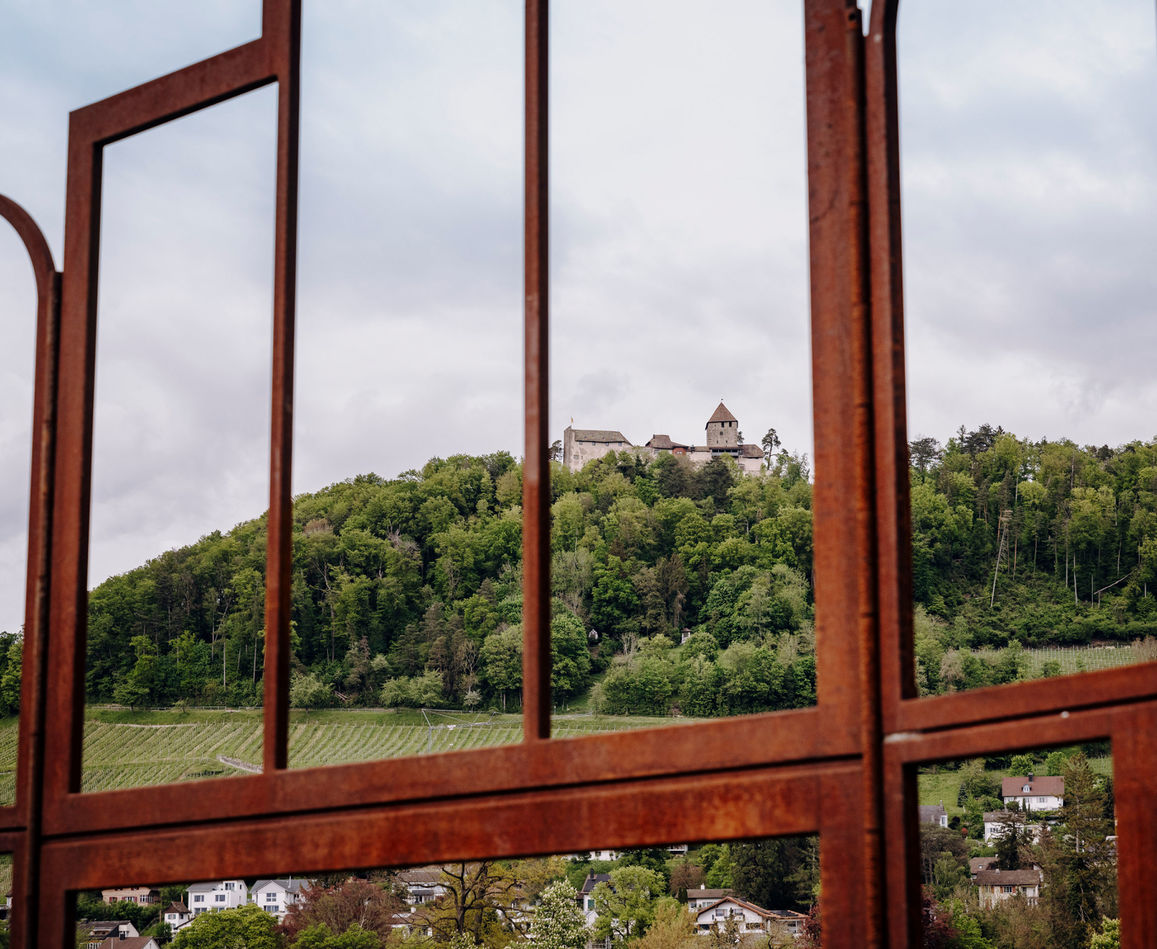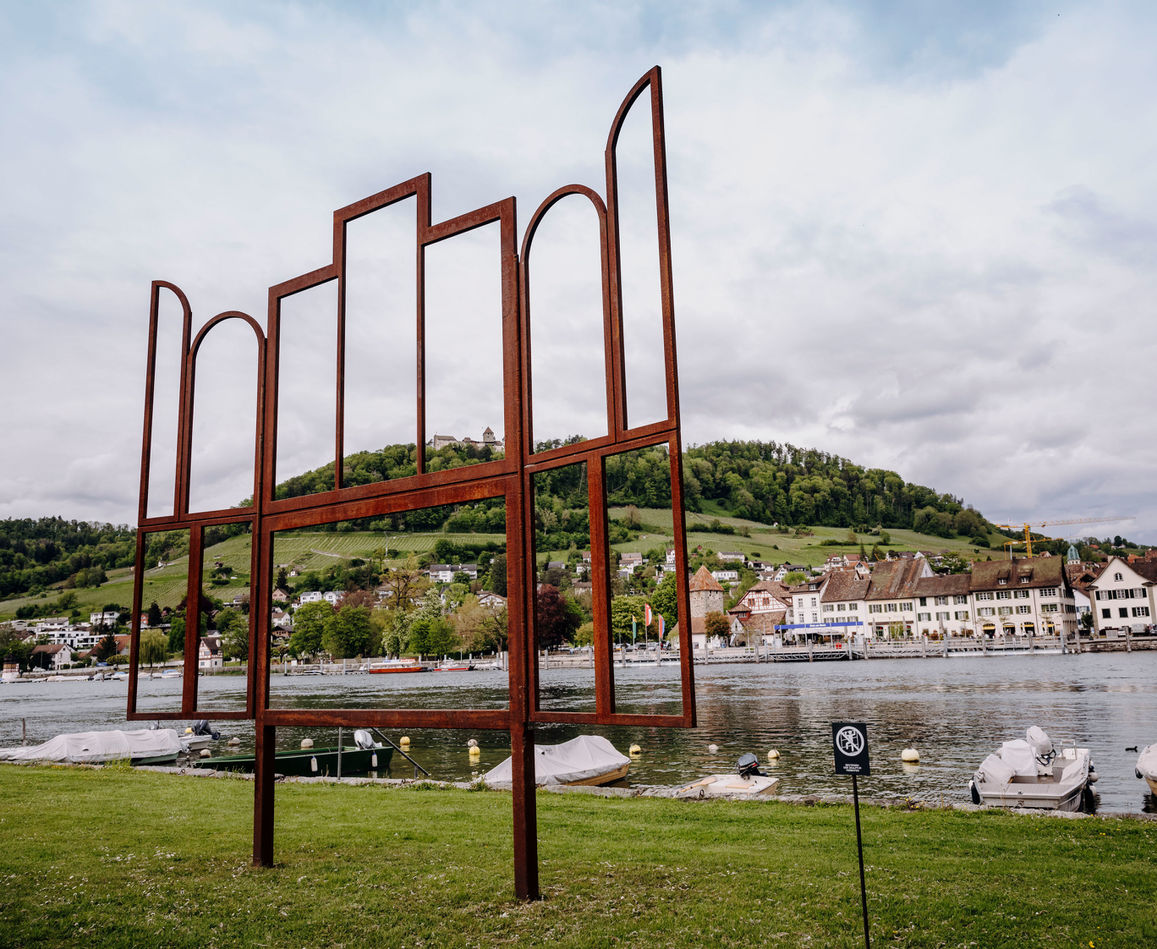OBERE STUBE
curated by Helga Sandl and Andreas Schwarz
The famous Ghent Altarpiece by the van Eyck brothers created in 1432 was spared the destruction of images during the Reformation period due to its high artistic value, which was already recognized at the time. By showing only the framing of the altarpiece, its skeleton, in the original dimensions, Kris Martin addresses the absence of images on several levels in his work.
The iconic form of the wing arrangement recalls the original and refers to the significance of cultural image memory in Christian-influenced, European visual history. But the imageless altarpiece also makes reference to the iconoclasm of Reformation. In the course of these disputes, many religious
images were removed from churches and partially even destroyed. From the viewpoint of Reformation,
they could beguile people to worshipping idols and were additionally deemed a sensual diversion.
The painted paradise landscapes on the Ghent Altarpiece show nature as precisely as possible in all its details. Dutch painting was famous for this virtuosity in depicting nature. In Kris Martin’s treatment, the now empty frame grants a view of the city and landscape, so that, depending on one’s position, differ-ently framed “real landscape images” emerge. In addition to these questions related to the history of images and religion, Kris Martin’s work invites us to think in a more general way about the meaning and function of images and the relationship between nature and imitation.
KRIS MARTIN (*1972 in Kortrijk) is a renowned Belgian conceptual artist posing existential
questions about mortality, faith or death with gentle humor. He often responds to already
existing or found objects which he re-contextualizes. By means of minimal changes and interventions, small additions or deliberate reductions, Martin effects subtle shifts in meaning and confronts us viewers with our own preconceptions and assumptions.
An exhibition is also on view in the Kulturhaus Obere Stube:
KRIS MARTIN – OLA KOLEHMAINEN
AUS ÜBERZEUGUNG (by conviction)
June 29 – October 31, 2024
Tuesday–Sunday
10 a.m.–5 p.m.
→ Book here
Information for groups
We look forward to welcoming you! Pre-registration is required for organisational reasons.
Turn on Javascript!
OBERE STUBE



